Are you planning to replace an old and possibly faulty water heater, and you’re wondering if you need a special permit to do so? Wonder no more, for we have researched the answer for you, including the rationale and other related questions that you might have.
Most cities and states in the US require a permit to install a water heater—whether you’re replacing a broken one or you’re upgrading. The permit covers potential safety issues that can arise from a water heater if not correctly installed.
There are good reasons why a permit is required, and we will discuss those in the succeeding sections. We also have answers to related questions that you might have in connection to replacing water heaters. So, without further ado, read on!
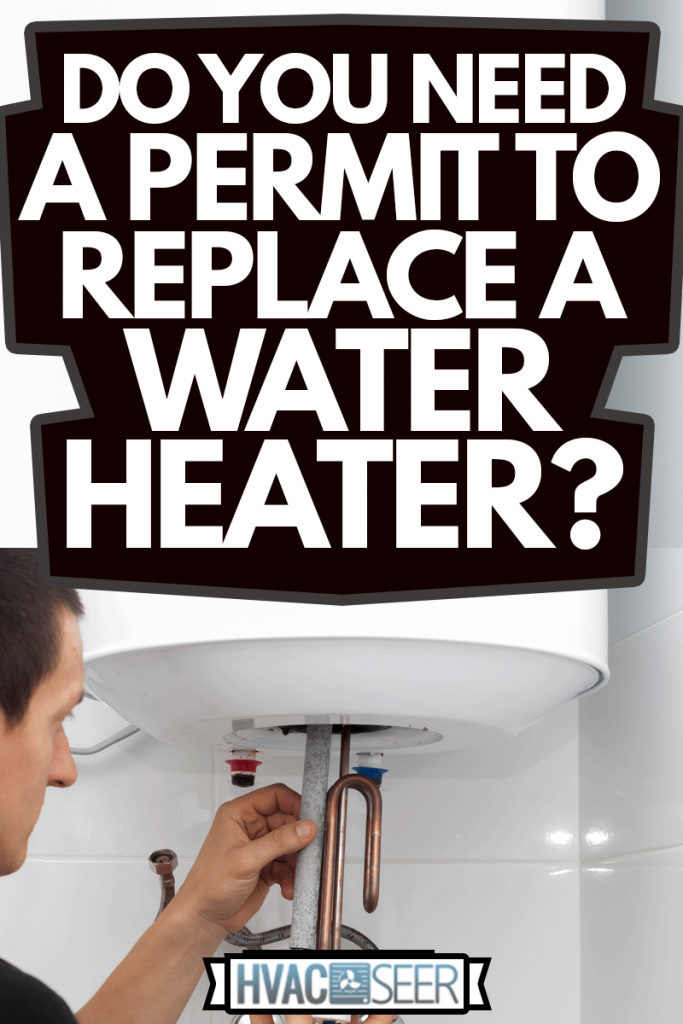
Why is a permit needed for water heater replacement?
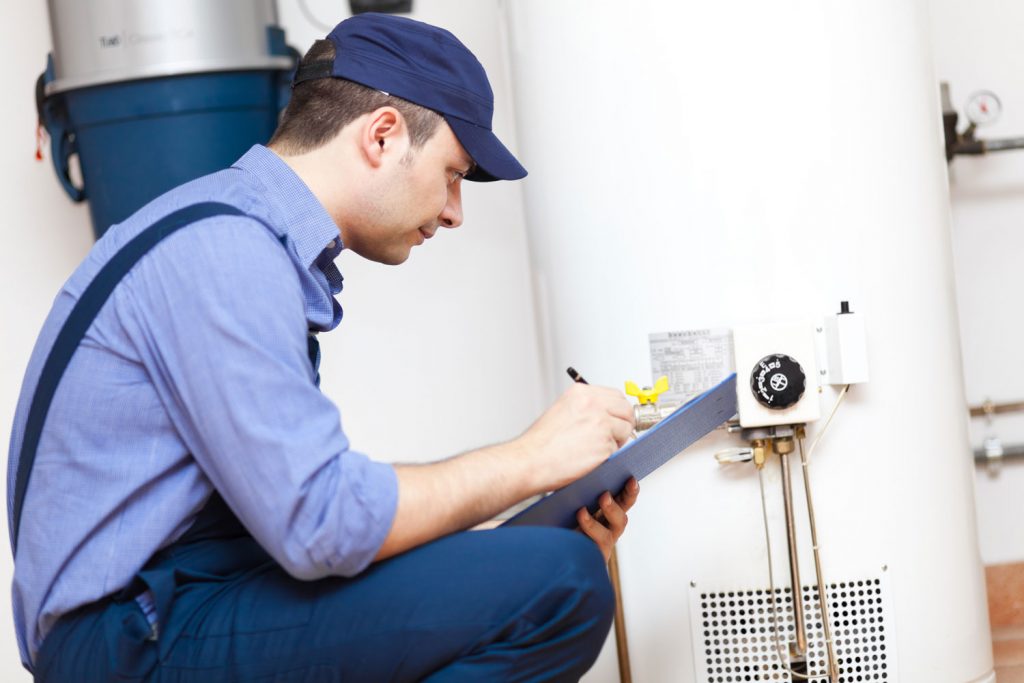
Most people think they only need a permit for a new house or major home renovations. However, this is not always the case. The permit for replacing or installing a water heater is not to get permission.
The permit ensures that the installation or replacement will be inspected once it has been completed. Many jurisdictions in the US require a permit because of the dangers involved in installing a new water heater or replacing an old one.
For example, gas-powered water heaters require a connection to the gas line. If this line is not installed properly, it is a fire hazard to the house and community.
An electrical water heater needs wiring and a breaker to function properly. It is important, therefore, that all electrical components are correctly installed.
Additionally, water heaters need a temperature and pressure relief valve. Without this, the pressure could build up and cause an explosion.
Water from the water heater could leak and destroy surrounding structures. Carbon monoxide can leak into your house and cause you and your family harm.
A plumbing inspector can identify potential problems and address them before they can be a hazard for you, your family, and your home.
These are some of the reasons why an experienced plumber is required to properly install a water heater. The upside of this is that most professional water heater installers can get the permit for you for a hassle-free experience.
Where should a water heater be placed in a house?
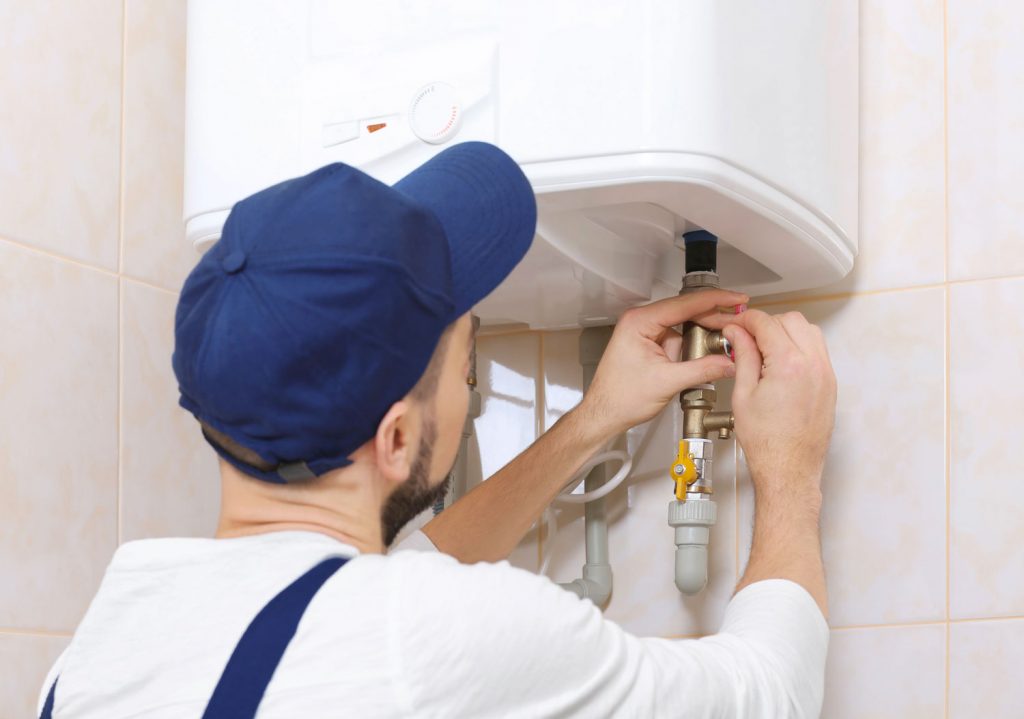
Like water heater replacement permits, state and national regulations specify locations where to install water heaters. Most of these regulations require that water heaters are installed against an external wall of the house.
This requirement is one of the reasons why most water heaters are installed in the basement or garage. Installing a water heater against an external wall is a good idea to easily make room for the flue.
Other Considerations for Water Heater Placement
Another factor to consider is to place your water heater close to the faucets or showerheads where hot water will be accessible. Hot water moves from the hot water tank, and the water rapidly cools as it travels through the pipes to where it will be used.
The farther away the faucets are from the water heater, the more energy will be wasted along the way and the harder the water heater needs to work to provide the needed amount of hot water. Placing the water heater as close as possible to your kitchen and bathrooms helps save energy.
Drainage
In addition to installing your water heater on a level floor, it should also be installed close to a floor drain in case there are water leaks. The relief valve of a water heater also needs to go to an open drain.
Most regulations allow the installation of a drain pan under the water heater because installing it close to a floor drain isn’t always possible.
The drain pan should be at least two inches deep. It should also be at least two inches longer and wider than the water heater dimensions. Install a pipe to connect the drain pan and the drain for adequate water disposal.
Power & Insulation
Most water heater manufacturers prefer to have water heaters installed close to power sources so that the wiring can be as short as possible. Pipes and wires should be insulated so that damage from leaks will not short out the electrical system of your house.
Check out: "Are The Water Heater And Furnace Connected" for more installation ideas.
Can I install my water heater outside the house?
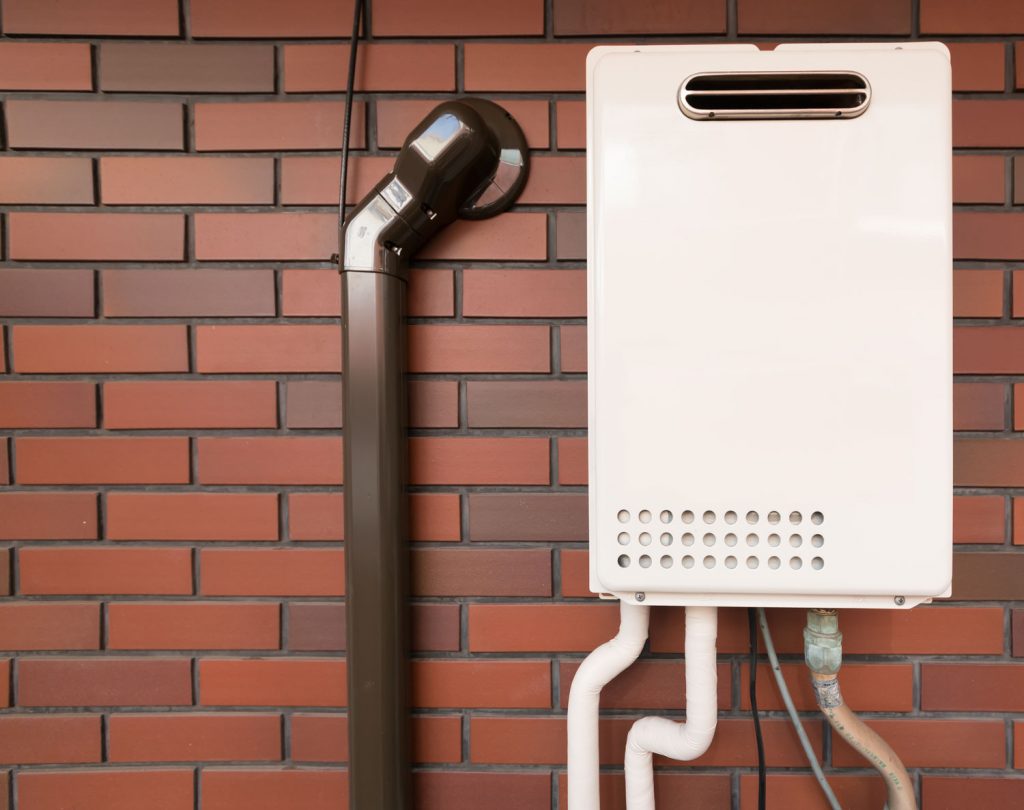
You can install water heaters outside the house. However, electric and gas tank-type water heaters are not designed to be installed outside without shelter.
Tankless gas water heaters have models that can be installed outside. Even tankless electric water heaters can be installed outside with shelter.
How much would it cost to install a 50-gallon water heater?
A new 40- to 50-gallon water heater can cost anywhere from $330 to $2,000 for the unit.
In addition, the installation labor can cost $200 to $1,000. The installation can take two to six hours to complete for most tank-type units. The installation cost for gas water heaters is normally $100 to $700 more than the electric water heater installation cost.
Annual operating costs for tank-type units are $225 to $580, while tankless units have an operating cost of $150 to $535.
Can a water heater be enclosed?
Water heaters are often installed in the basement. However, if the basement is repurposed, the water heater can be left in plain view and diminish the room's appearance.
The water heater can be enclosed with walls and turn the enclosed area into a utility closet. So, would a wall four inches away from the water heater be sufficient?
Concrete Network explains that the enclosed space of water heaters should remain accessible without removing any permanent construction. This is to ensure that the water heater can be easily inspected, serviced, repaired, and replaced.
If you have a gas water heater, the enclosure should have access to a sufficient amount of fresh air for the fuel to burn efficiently.
In addition to having adequate space, you’d need to install a double door on one of the walls. Double doors ensure that you have enough room to remove the old water heater out of the enclosure and bring in a new one.
Which water heater is best for your home?
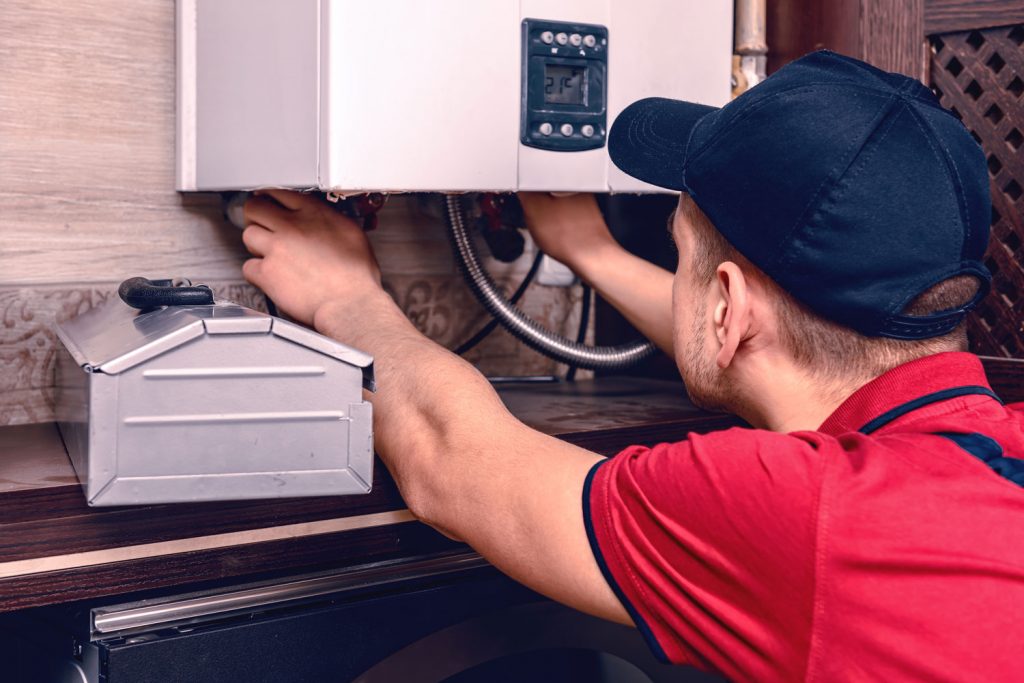
Water heaters can easily become a costly investment if you chose the wrong type for your home. Consider the cost, efficiency, and longevity of the unit.
According to Energy Saver, the US Department of Energy’s consumer resource on saving energy, a properly sized water heater will meet the hot water needs of your household and operate more efficiently. Thus, it is important to know the correct water heater size for your home before purchasing one.
Advantages and disadvantages of Different types of water heaters
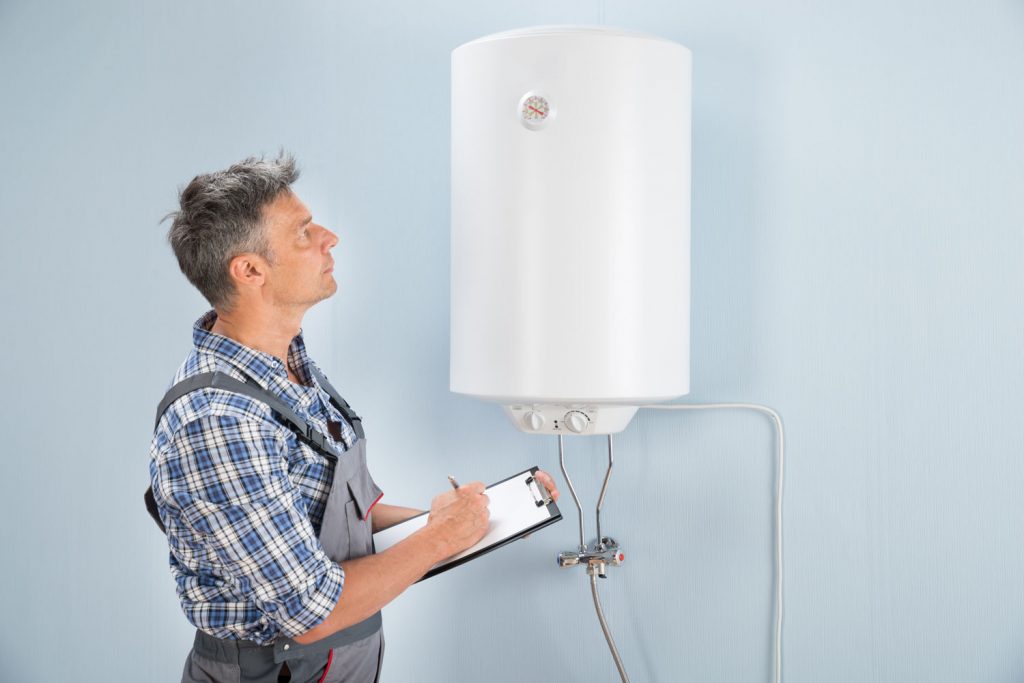
Tank Water Heaters
Tank-type water heaters have been a common appliance in US homes for many years. These can be powered by electricity, gas, fuel oil, or propane.
The main advantages are its low price and that it stores hot water that can be used anytime. Regardless of the power source, a common disadvantage of tank types is inefficiency.
Other disadvantages include the risk of causing fire and carbon monoxide poisoning. Additionally, they are large and bulky. They can easily run out of water, and they have short lifespans of typically 10 years.
Tankless or On-demand Water Heaters
Tankless water heaters have several advantages, like being energy efficient. Thus, it is cheaper to use month after month. They are also compact and don't consume too much space.
Check out the Bosch Tronic 3000T electric water heater if you’re looking for a tank-type water heater that doesn’t need a lot of space. Check it out on Amazon.
You might hear a tankless water heater also called an on-demand heater because it heats the water as you use it. Thus, it can supply you with endless hot water daily. These also have longer lifespans, on average of 20 years.
The disadvantage of a tankless water heater is that it is more expensive to purchase and install. The installation cost can compound if you need to replace a tank-type system with a tankless system. In the long run, however, the initial investment can easily be recovered by the lower monthly cost.
If you're wondering how often a tankless water heater runs, we have an article here that answers that question.
Check out this EcoSmart ECO 11 electric tankless water heater on Amazon.
Conclusion
A permit is required to replace an old water heater. This permit ensures that a professional will inspect the installation to identify potential issues. Addressing these potential issues early can save you money.
If you’re still deciding whether to go for a tankless water heater or a traditional tank-type water heater, consider the advantages and disadvantages of both. Some of the advantages are immediate, while some are long-term. Compare the disadvantages before deciding which heater type are you willing to live with for the next decade or so.


